The Angry Himalayas Part-VIII: Proliferating Chinatowns - Threat to Global Security
The Angry Himalayas Part-VIII: Proliferating Chinatowns - Threat to Global Security
Mangalore Today News Network
By Dr G Shreekumar Menon
Mangaluru, Oct 16, 2020: In this article, the focus shifts from the tense borders of India versus China Occupied Tibet (COT) to the global arena, which is witnessing and experiencing, Chinese expansion in the guise of Chinatowns, which are exclusive Chinese settlements, housing, businesses, recreational and residential dwellings. Areas known as "Chinatown" have been builtin Europe, America, South America, Asia, Africa, Australia, Middle East and even in India.Currently, there are 35 Chinatowns in 19 countries spread over Asia, Europe and USA, having exclusive Chinese stores, restaurants, temples and residences. Chinese migration to different parts of the globe to set up industries, constructing infrastructure projects and international trade has enabled the mushrooming of Chinatowns.
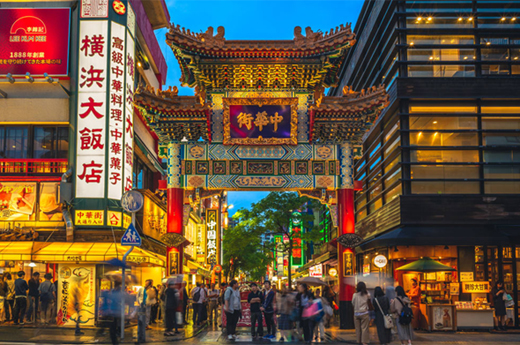
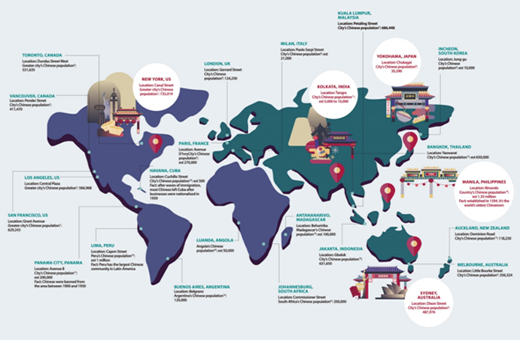
Binondo in Manila, Philippines established in 1594, is recognized as the world’s oldest Chinatown. USA has the largest number of Chinatowns.The Manhattan Chinatown in USA has the largest concentration of ethnic Chinese in the Western world while the Flushing Chinatown in Queens, New Yorkis reckoned as the world’s largest Chinatown. There are many more Chinatowns under construction in different parts of the world.
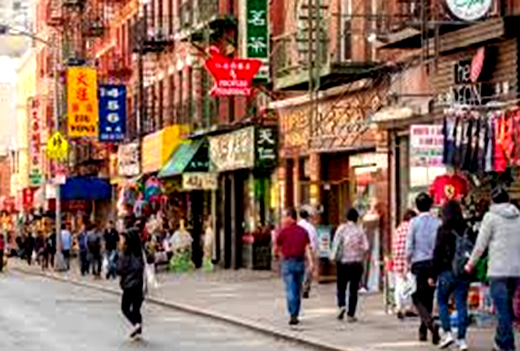
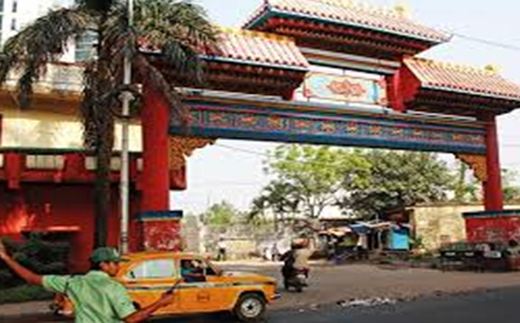
Chinatown in India is situated at Tiretta Bazar (or TeritiBazar) area of Central Kolkata. Another Chinatown is located at Tangra, Kolkata.
All Chinatowns across the world are cluttered with small Chinese restaurants, souvenir shops, leather goods shops, stalls selling everything from silk robes to lucky cats. A range of food carts and hawkers fill the streets. There are plenty of clothing stores, umbrella shops, and boutiques offering party dresses.
In addition, Moneychangers are ubiquitous dealing with a variety of currencies. However, lots of clandestine businesses thrive in the by lanes of many Chinatowns. Secret organizations called Tongs exist for providing support and protection. Gambling, prostitution, supplying bodyguards, narcotics trafficking, and human trafficking are other standard fixtures. There are other dreaded secret gangs like the Triads, which are involved in every illegal activity.
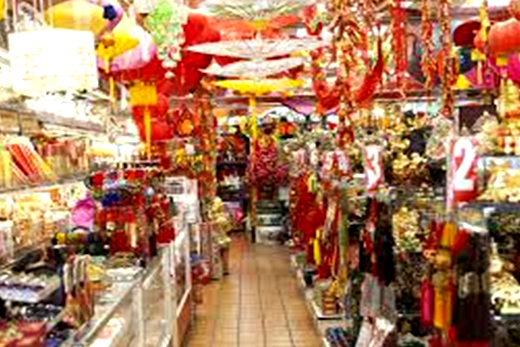
However, what should be of universal concern is as to why the government of China is promoting setting up of Chinatowns in almost every country. It is common knowledge that the Chinese government employs diverse methods of espionage overseas.The Ministry of State Security, the United Front Work Department, and the People’s Liberation Army function through a vast network of front organizationsto monitor dissidents, supporters of the Tibetan independence movement, Uyghurs as well as the Taiwan independence movement, the Hong Kong independence movement, Falun Gong, and critics of the Chinese Communist Party.Among the tactics employed are cyber spying, signals intelligence and human intelligence.Industrial espionage is actively pursued to obtain access to commercial, technological and military secrets. Facial recognition and surveillance, artificial intelligence (AI) technology are continuously being improvised inside China to keep track of Uyghurs,a Muslim minority. Security concerns and deep rooted suspicions over Chinese developed 5G wireless networks, has prompted many countries to put on hold collaborations in the telecom sector.India has alerted companies to avoid using Chinese-made telecommunications equipment, suspecting that it may have spy capabilities embedded within it. Also, there are reports that China is using dozens of study centers that it has set up in Nepal near the Indian border in part for the purposes of spying on India.
Chinese student spies in US universities and research establishments is receiving lots of attention from many intelligence agencies. It is estimated that more than 100,000 Chinese students and researchers come to the U.S. annually. There are estimates in circulation that the FBI is opening a new China-related counterintelligence case about every 10 hours. Of the nearly 5,000 active FBI counterintelligence cases currently underway across the country, almost half are related to China.
Chinese intelligence agencies are cultivating expatriate Chinese scientists, businesspeople and students to gain access to latest technology and scientific studies. The sheer size of the Chinese student population at US universities presents a major challenge for law enforcement and intelligence agencies.Campus spying is difficult to detect. A lot of ideas, technology, research, and innovation is incubated in university campuses, and that’s why it’s the easiest place to steal.To deter campus espionage, various intelligence agencies have been persuading universities and research institutions to tighten up policies governing outside relationships, travel disclosure and conflicts of interest for graduate researchers and professors.This modus operandi employed by China is unique in the way it seeks to harness its citizens abroad in the service of a national policy covertly designed to extricate latest technological innovations and ideas in order to leapfrog the West in technological supremacy. Thus China is actively engaged in a multifaceted effort to misappropriate cutting-edge technologies which it wants to utilize for domination. Students are an easy and inexpensive investment that can be manipulated to become channels of information and data flow. In order to facilitate easy recruitment of students the Chinese government has floated a Thousand Talents Plan. By recruiting and deploying large number of student spies there is a critical counterintelligence threat to the USA and other Western countries. This has led to university monitoring of other nationalities as well, especially, those who are involved in studyingscience, technology, engineering and math (STEM).Intelligence agencies have also been visiting universitiesand American tech companies to dissuade them from collaborations with Chinese entities. As a result, several universities, including the Massachusetts Institute of Technology, Stanford University and the University of Illinois, have cut off research collaborations with Huawei.
Chinatowns scattered across the world play an important role in the intelligence gathering architecture. Exclusive enclaves of Chinese nationals, their businesses, restaurants, fancy shops, temples, Feng-Shui shops, glitter and gloss of brightly coloured paper lanterns provide an excellent setting for exchange and transfer of confidential data.
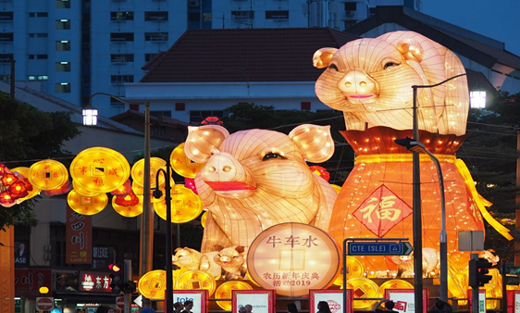

Chinatowns provide a James Bond like theatrical setting where spies and their handlers can safely exchange secret information. In the present context of rampant COVID 19 transmission across the world, it would be safe to assume that Chinatowns must have played a critical role in its spread.
The Chinatown at Kolkata is situated in a sensitive belt. Border of Bangladesh is just about 500 kilometres away. The 60-kilometre long and 22-kilometre wide Siliguri Corridor is about 580 kilometres from Kolkata. It is also known as the “Chicken’s Neck”, connecting India’s north-eastern states with the rest of the country.The Siliguri Corridor, through the rail and road networks passing through it, sustains the primary military formations located in the North East which will counter the Chinese during any conflict. The road which China has started building in the Doklam plateau will give it the capability to launch an overwhelming offensive during a conflict with India. This could choke the corridor and cut off the North East from the rest of India. This will be problematic for the Indian military formations.
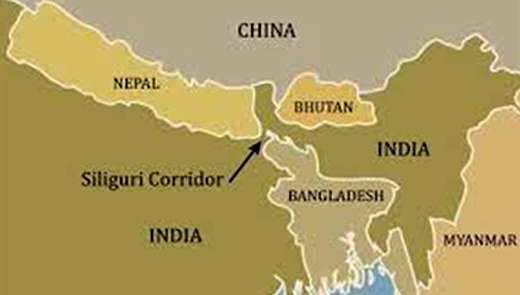
India and China are at present in a confrontation mode in the area close to Sikkim - the tri-junction between India, Bhutan and China. The face-off followed Indian troops opposing construction of a road by the Chinese in the Doklam plateau. Also known as Donglang or Dolam, the plateau belongs to Bhutan. This road is a cause of concern for India. If completed, it will shorten the distance for the Chinese army towards India’s strategically vulnerable ‘Chicken’s Neck’ area—the Siliguri Corridor. Kolkata’s Chinatown can be effectively used by the Chinese as a spy base for a variety of intelligence operations.India needs to maintain a special watch on Kolkata’s Chinatown.
It will be prudent on the part of nations to discourage setting up of new Chinatowns, the existing ones also need to be redeveloped and made multi-cultural, in order to upset Chinese futuristic expansionist designs.
Related Article:
Part 1: THE ANGRY HIMALAYAS - String of pearls vs Garland of Opium
Part 2: The Angry Himalayas-Part II: Tibet Needs a Warrior - Monk or Dob-dobs
Part 3: The Angry Himalayas Part III: Opium Wars - How China Lost Vladivostok to Russia
Part 4: The Angry Himalayas - Part IV: Is It time for Opium War III?
Part 5: The Angry Himalayas: The Incredible Story of ‘Looty’ the Pekinese Toy - Dog
Part 6: The Angry Himalayas – Part VI: Eight Nation Alliance Crushes China in 1900
Part 7: The Angry Himalayas-Part 7: Will Modi make Xi’s ’China Dream’ into a ‘China Nightmare’?
 Dr. G. Shreekumar Menon IRS (Rtd) Ph.D: Former Director General of National Academy of Customs Indirect Taxes and Narcotics & Multi-Disciplinary School Of Economic Intelligence India; Fellow, James Martin Centre For Non Proliferation Studies, USA; Fellow, Centre for International Trade & Security, University of Georgia, USA; Public Administration, Maxwell School of Public Administration, Syracuse University, U.S.A.; AOTS Scholar, Japan. He can be contacted at shreemenon48@gmail.com
Dr. G. Shreekumar Menon IRS (Rtd) Ph.D: Former Director General of National Academy of Customs Indirect Taxes and Narcotics & Multi-Disciplinary School Of Economic Intelligence India; Fellow, James Martin Centre For Non Proliferation Studies, USA; Fellow, Centre for International Trade & Security, University of Georgia, USA; Public Administration, Maxwell School of Public Administration, Syracuse University, U.S.A.; AOTS Scholar, Japan. He can be contacted at shreemenon48@gmail.com
- Need For ‘Students, Alcohol and Drugs’ survey
- New Synthetic Drugs Trapping Youth
- Mood Modifying Chips - Future of Drug Use
- Ramping up Indo-Bangla border security
- IITM- A premier educational Institution in a forest. What can we learn?
- Former PM, Manmohan Singh: Notable laws passed under his tenure
- Hashish on Ratnagiri Seashore
- The Poor cry out to Us: Do we respond?
- Clandestine Meth Labs Sprouting Across India
- Hydro ganja from Bangkok latest craze among youth in India
- "Memories to Treasure" Dr.Michael Lobo’s new book
- Dominance of Private Universities: Will it make education inaccessible to underprivileged students?
- Monti Phest: A rich heritage of South Canara
- Kashmir Bhavan in Bengaluru: A must visit place
- "MAI and I" Book of Angelic Emotions
- Draupadi Murmu - The New ’President of India’
- Anthony Ashram in the city grows a classic museum
- First College of Fisheries in India - A Golden Jubilarian
- Flushing Meadows - A Vintage Mansion
- The Colonel�s Bequest
- A Mangalorean PM and his RBI Governor Brother: The Extraordinary story of the Benegal Brothers
- There is no higher religion than Truth: Theosophical Society
- L�affaire - Ashu & Yiju of Mangalore
- Mangalore in Kowloon
- 1568 to 2018 AD: 450 years of Christianity in Mangaluru
- Vice President elect Naidu moves on from nadir to zenith, the phenomenal journey
- Embracing the Outdoors: How Heated Jackets Are Revolutionizing Cold Weather Activities
- Efficient and Sustainable Packaging Solutions with FIBCs
- The Hybrid Kilt Revolution | Where Tradition Gets Trendy
- Affordable Elegance | Embrace Style on a Budget with Cheap Kilts
- Unleashing Style and Functionality | Exploring Tactical Kilts
- Mangalore’s Heroic Lady marks 105th Birthday
- Santa the Christmas spirit
- Geriatric care: Mangalore strikes a fine balance
- The Don Who Made Two Empires to Clash
- CHITRAPUR SARASWATS - A Great Kanara Community
- Our new President Ram Nath Kovind’s significant journey to Rashtrapathi Bhavan
- Marriages made in heaven, big fat weddings made in India
- Eid insight - The giver of glad tidings
- CITY INFORMATION
- TRAVEL
- TOURIST INFORMATION
- HEALTH CARE
- MISCELLANEOUS




 Write Comment
Write Comment E-Mail To a Friend
E-Mail To a Friend Facebook
Facebook Twitter
Twitter  Print
Print 


